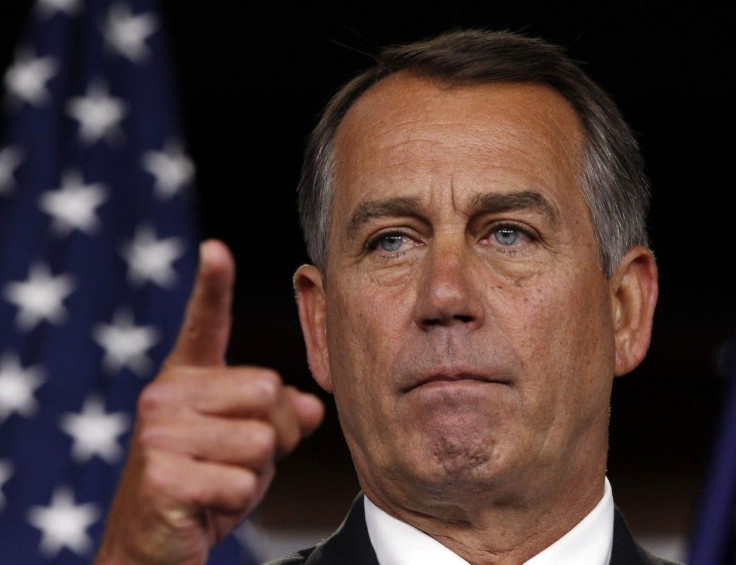Speaker Boehner: No U.S. Default on My Watch

Analysis
So far the debt deal talks have produced more heat than light, with Democrats vying with leading Republicans to see how long a national political party can cling to its rhetoric in a time of national crisis, but on Tuesday House Speaker John Boehner, R-Ohio, sought to both clarify where we are and reassure investors.
Boehner Tuesday vowed once again to not allow a debt default on his watch, Politco.com reported, adding that House GOP leaders were working on back-up plans to increase the U.S. Government's $14.3 trillion debt ceiling, while cutting spending, and without a tax increase.
The President has said now for once he wants a balanced approach, Boehner said, in a statement. Well, guess what - in 'cut, cap, & balance' [House GOP bill] he does get a balanced approach. He gets his increase in the debt limit of $2.4 trillion. What we get are real cuts in spending, and real reforms in place that will make sure that this problem never, ever happens again.
On Aug. 4, the U.S. Treasury Department is due to pay off $30 billion in maturing short-term debt. In theory, the United States could prioritize debt payments, but U.S. Treasury Secretary Timothy Geithner has also warned lawmakers in Congress that the prioritization tactic would still cause investors to shun U.S. Treasury securities, commonly known as Treasuries.
Geithner has also repeatedly underscored that failing to raise the debt ceiling will have no constructive outcomes for the nation's fiscal condition, the task of deficit reduction, and U.S. and global stock and bond markets.
As of Tuesday at mid-day it appeared that the best chance of debt deal is the last-chance proposal by Senate Majority Leader Harry Reid, D-Nev., and Senate Minority Leader Mitch McConnell, R-Ky.
Reid and McConnell's complex proposal would let the president increase the debt limit by $2.5 trillion by the end of 2012, provided a veto is not overridden in the House and Senate. The measure could come to the Senate floor as early as Wednesday.
Political/Public Policy Analysis: Speaker Boehner's reiteration help reassured jittery stock and bond markets, and the Dow Jones Industrial Average was up about 127 to 12,512 on Tuesday at mid-day; the U.S. bond market also rallied.
Therefore, we're lowering the risk barometer, on a scale of 0 to 100 percent, of the likelihood of a U.S. Government default, to 35 percent heading into Wednesday, 5 percentage points lower than it was on Monday.
© Copyright IBTimes 2024. All rights reserved.





















